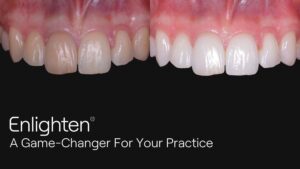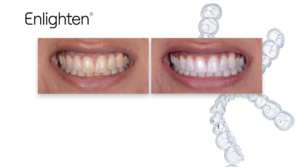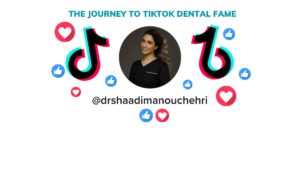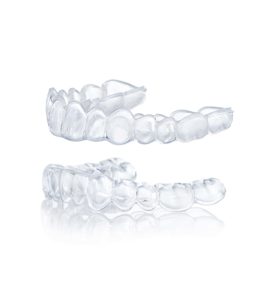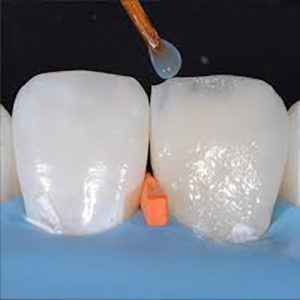The key to owning several dental practices uncovered
Implant surgeon Dr. Jagjit Shergill talks about his experience managing different practices and also give some advice to young dentists.
Have you ever wondered what the key is to owning several practices? Dr Jagjit Shergill – implant surgeon and owner of multiple practices – talks to us about his success and how anyone can apply his approach to their own career.
Dr Payman Langroudi: Jag, as a super successful implant surgeon, I think people watching this are going to want to know, if they were starting out as dentists and they want to get into implant dentistry, what are your key bits of advice that you would give someone young who wants to get into it?
Dr Jagjit Shergill: There’s three; get in straight away. You are never too young. And by get in, I mean get a mentor, go to practices. People like me are quite happy to say, come and see us work. We like to be involved with the younger people. Come along, from day one immerse yourself in the environment and make it sound normal and feel normal to offer your patients from day one, as you should, implant surgery. So, from day one, start the journey, initially observing and getting mentoring, then getting involved, formalising it. Then eventually either keeping yourself purely in that role or adding other factors such as what we did just today, the Mini Smile Makeover course.
Dr Payman Langroudi: How early did you say? Would you say if someone had just qualified that it’s a good time for them to sit with you?
Dr Jagjit Shergill: That’s perfect.
Dr Payman Langroudi: Really?
Dr Jagjit Shergill: Yeah. Because the same patients are going to come into your practice, whether you’re an FD, whether your first-year post FD. So, you really should have enough knowledge to know what is appropriate and what isn’t appropriate for the conversation. So absolutely, from day one.
Dr Payman Langroudi: All right. So then say I’m a young guy coming to watch you. Then I know what’s possible. At what point should I start actually drilling for implants, actually doing the work? Straight away?
Dr Jagjit Shergill: No, not at all. I think it is definitely important to find yourself a happy medium. Basically, when your confidence is greater than your competence, you’re in trouble. Find your own competence levels in observing, in assisting, in co-diagnosing and getting involved with retracting during surgery following a formal course, getting a mentor, eventually replacing yourself or not getting involved surgically at all. Go on the restorative phase. Go on designated courses. Make sure you are doing everything within your competency level. The important thing is if it is for you, you’ll find out very quick. It’s very contagious.
Dr Payman Langroudi: So, you’re doing mainly all on 4s?
Dr Jagjit Shergill: Bigger cases, a lot of all-on-4s, a lot of full mouth implant cases. I’ll still do the occasional or quite a few singles and laterals and two or three at a time. But my preference is for large rehabilitation.
Dr Payman Langroudi: And you don’t only do implants.
Dr Jagjit Shergill: No, I have three stakes in dentistry these days. Implant surgery, took in for a large implant work; aesthetic restorative, I’ve been doing that for the last 28 years and a lot of orthodontic work. I was quite fortunate about 10 years ago. Two of the first guys ever in the states actually being taught Six Months miles by Ryan Swain, who was the owner of Six Months Smile at the time. That was about ten, eleven years ago. I do a fair amount of Invisalign, want to do more. But the three aspects of orthodontics, aesthetic restorative and implant surgery mean that I’ve actually got quite a pretty good chance that I can sort most things out without referring out patients coming into my practice.
Dr Payman Langroudi: How come you haven’t stayed in one of those three lanes instead of doing all three?
Dr Jagjit Shergill: I get bored easily. If I’m engaged, I’m 100% in. And if I just did one of those factors, I’d get bored. So, I think the sensible thing for me is knowing if I split all my time, a third, a third, a third and there’ll be months when I do a lot more implant work and orthodontic work and other months more aesthetic restorative.
It allows me to delve into all three aspects and give a full multidisciplinary appropriate treatment to patients no matter what walks in the door. So, it might be that I think something is not going to stimulate me a lot, but I’ll advise the patients and I will have one of my associates do the work.
That’s happening more and more often. But it’s nice for me to have those three aspects of dentistry, which in themselves I could easily do full time, any one of those three. But keeping the three, broadly speaking, available to me on a daily basis, it stimulates me.
Dr Payman Langroudi: For me it’s quite interesting, someone like you who’s so involved in deep implant treatment to then come on to a Mini Smile Makeover course. We see the odd one or two people coming. What I’m thinking is, is that continuous learning, the reason why you got so good at implants in the first place?
Dr Jagjit Shergill: Possibly.
Dr Payman Langroudi: Because if I think about it for myself, if I was at your level at implantology, I wouldn’t really be bothering with composite. I’d be just there now. But you are here and you’re humble enough to be learning from someone like Dipesh, who is 20 years younger than you. And a lot of times we hear “I don’t think he could teach me anything”. So what is it about you? Is it curiosity?
Dr Jagjit Shergill: I don’t want to be a pioneer. I don’t want to do the legwork in having to learn everything afresh and make all the mistakes. I’d rather say what parts of dentistry is interesting me? Who’s doing well, who’s ethically, morally and professionally being successful, not just professionally, but business wise is important and thinking let’s copy. Let’s learn. But let’s do it directly from the horse’s mouth rather than from somebody who’s been there.
The reason I’ve really come the last two days and it’s been a fantastic course by the way. Genuinely. I’m not just saying that. I sell myself, so to speak, to patients as if you have a dental problem and you want an aesthetic functional long term result anywhere in the range from the smallest little change you want to make to full mouth rehabilitation I can provide that for you. And the good thing with this is that it allows me to get those patients early on: young, old, immaterial, who literally just want preferably no injections, no drilling, very cost-effective treatments. I can say: “On a scale of zero to 10, when zero is minimum intervention, no intervention, 10 is full mouth implants I can provide the whole range”.
Dr Payman Langroudi: Are you finding that patients are asking for composite now?
Dr Jagjit Shergill: They come in and say I want bonding.
Dr Payman Langroudi: That’s new, isn’t it? How long ago did that start happening?
Dr Jagjit Shergill: I think, to be honest, pretty much since you guys started doing stuff online. There’s a cause and effect there. I would say definitely the last year or so.
What I do like about the way this Mini Smile Makeover course, as well with Enlighten is put together is it provides very much a package type approach for the patient. Maybe we can say: “Great, we can whiten them, we can straighten them if you want to, we can contour them”. Every stage you’re one step further than you were, and you could stop at any one of those stages. You haven’t got to go through the whole thing. You can stop, we can reassess.
Dr Payman Langroudi: That’s what we call progressive treatment planning, not knowing at the very beginning where you’re going to end up as the thing goes on.
You own a multiple number of practices. What would you say is the key to managing lots of practices?
Dr Jagjit Shergill: Good managers.
Dr Payman Langroudi: Do you have one in each?
Dr Jagjit Shergill: One in each, yes. I used to have a few more clinics, a lot more clinics that I have now.
Dr Payman Langroudi: But when you had lots more, what was the key?
Dr Jagjit Shergill: The key was having good managers. We’ve all had bad managers in the past and they’ve come and gone, which is good.
Dr Payman Langroudi: Do you think you are good at hiring?
Dr Jagjit Shergill: I don’t actually hire, that’s the bizarre thing. Once the manager is in, they will hire. Apart from dentists, I don’t get involved. With the nursing staff, even with the hygienist, the manager will hire them because they are spending more time with them. I do get involved with the firing. The last 20 years had some fantastic managers. I had some bad managers before that. The reason I couldn’t cope with it is it’s all stressful. The stress levels from one practice to two practices is a massive stress. Two to three and three to four is almost zero, there’s a certain amount of duplication that occurs, but then it gets a stage where you realise that actually sometimes less is more.
Dr Payman Langroudi: When you’ve got a number of practices andyou’ve got managers in each one. How often are you in touch with each of those managers?
Dr Jagjit Shergill: Daily.
Dr Payman Langroudi: Oh, daily with everyone?
Dr Jagjit Shergill: Has to be, otherwise it’s pointless.
Dr Payman Langroudi: So, you’re literally trusting them to tell you what issues there are.
Dr Jagjit Shergill: Absolutely. And the good ones, specially the last six or seven years that I’ve had, they weren’t just good, but they protect me from the majority of issues going forward. If it gets to me it’s been through the triage process of it’s not important, it’s vexatious or they can deal with it. By the time it gets to me it’s a particular clinical issue which nobody else can resolve. Or it’s something I’m legally duty bound to.
Dr Payman Langroudi: What would you say has been your lowest point? Professionally. Like a bad day, where something went really wrong?
Dr Jagjit Shergill: Oh, there’s loads of those but they only last for about two hours. The next patient comes in and then you’re on a high. Catch me at six different points throughout the day. I’ll be the happiest person in the world then ‘why am I doing this?’ Then the happiest person in the world and then ‘why am I doing this?’ I have got a binary switch off. When I’m gone, I’m gone and when I’m working you can lay on as much pressure as you want. It’s not a problem. So, I think genuinely, I’ve got a healthy attitude and what’s the worst that can happen? if you’re healthy, you can eat, drink and chew. We’re doing better than most people.
We’re actually a phenomenally impressive profession. And you can pick your own level of stress. A lot of the stress that we put on ourselves is greed for more patients or a yearn for more complicated treatments. I think as a profession, we’re hard done by; by the government and some of the regulatory bodies. But a lot of it, if you think in the grand scheme of things, we’re doing good. And I take nothing for granted. I feel very grateful for this profession. The bad days where things go wrong; with patients, with labs, go wrong with associates and staff I sit down and think actually it’s all good. I’m not down a coalmine.
Dr Payman Langroudi: What kind of a boss are you?
Dr Jagjit Shergill: Very hands off, my staff actually laugh at me because if any of the other practice nurses come to work with me they’re initially nervous and my staff say I’m the easiest dentist to work with. I’ll do most of the stuff myself if I can. I’m very sort of nurturing from that point of view. But there’s a line. I’ve got a long fuse but when I blow, I blow. This is why it’s quite important for me to have managers that manage all the stuff that might have a drip effect for me to blow one day. It’s not an aggressive blow, it’s very much like a dad saying ‘you really let me down’ and because I’m always praising them for them to hear ‘that was not called for’ and for me to walk away it’s actually more hurtful.
Dr Payman Langroudi: How do you manage to juggle six days a week of clinical work and running lots of practices at the same time?
Dr Jagjit Shergill: It’s the managers. But I take eight or nine weeks a year off now. I never used to. When I’m at work there’s no coasting. When the door gets closed, I’m off. So, the last few years, I’ve been taking eight, nine weeks off.
Dr Payman Langroudi: Are you actually off? What happens, you don’t talk to the managers?
Dr Jagjit Shergill: Not completely off. It’ll be a phone call every couple of days. Last year I took a month off. I went to Africa for a couple of weeks on safari and then I went over to the states for two, three weeks and I think I only contacted work three times. But I’ve only got a small number of practices now, it’s easy to manage to be perfectly honest. The girls are great.
Dr Payman Langroudi: What’s your advice then? If you had to give advice to someone who wants to go into the multiple practice game, would you say to do that? Or would you say now that you’ve downsized that you’re more comfortable in this situation?
Dr Jagjit Shergill: No, I think it’s all good. I think it depends on your personality traits, if your idea of a holiday is lying on a beach for two weeks, I’d stick to one practice. If your idea of a holiday is doing that but every day, you’re reading books about something, business books, travelling or whatever it is and you’re very active all the time then multiple practices could work for you. I know of at least three people that have 20+ practices. Happiest people you’ll ever meet in your life. They’re the first in the bar and the last out, they work extraordinarily hard and if you ask them how they’re doing, they’d say ‘I’m doing great’. I think sometimes one practice is lonely. But I think I would rather have one well-known practice than ten badly.
Dr Payman Langroudi: It’s sounds like you thrive on pressure.
Dr Jagjit Shergill: Yes, that’s right.
Dr Payman Langroudi: I’m not going to call it an adrenaline junkie because it’s kind of different to that but you do like pressurised situations?
Dr Jagjit Shergill: Yes.
Dr Payman Langroudi: Being a implants surgeon in itself is a pressurised thing, but having lots of practices and being an implant surgeon at the same time, you think you work well under pressure?
Dr Jagjit Shergill: Yes, I think so.
Dr Payman Langroudi: And you’re bored easily?
Dr Jagjit Shergill: Yes, it’s a dangerous combination but it’s good. I think I handle it well but my staff have told me otherwise. They can tell when I’m under pressure, I think I’m being quite cool about things and everything’s good, but they can tell a difference in my demeanour. From a very jovial and laughing and joking with patients to very matter of fact, but still jovial just very to the point. So, I would say to any younger colleagues, stay positive, lots of doom and gloom out there, but it’s a fantastic profession.
Dr Payman Langroudi: Have you got kids?
Dr Jagjit Shergill: I’ve got a three and a half month old baby. As time goes on, when he grows up we’ll see.
Dr Payman Langroudi: But if you had a kid who was 18 now, would you say go into dentistry?
Dr Jagjit Shergill: My girlfriend has a lovely 14 year old son. He’s our lad and he’s phenomenal and he keeps saying ‘Dad, I want to become a dentist’ and I say ‘son come on, let’s do it’. But having said that, I think whatever profession you choose, as long as you aim to strive to be the best that you can be or if you aim to strive to just do the best at that moment in time, it’ll be fine. I have ten nieces and one nephew. Six are doing dentistry. Two are dentists now. I wouldn’t push anybody into it. If you’re in it and you’re a student or recently qualified, stay positive. For every person that you hear in the press say there’s doom and gloom, I guarantee you there’s somebody who’s delighted with the profession. Search out those that are positive. That will give you value. They’ll say come and visit, learn. The nurturers that use almost a familial approach. You will see it’s the best profession in the world, in my opinion. Where else can you be the physician, the surgeon, the radiography, the businessman, the confidant, the artist, the scientist all in one? Whatever avenue you think is more your forte, you can engineer yourself towards there. There are massive challenges in the profession. It’s a lonely profession a lot of the time. If you’re somebody who likes to have a fantastic social life. a good living but most of all feel professionally advanced in their life, you’ve got to keep going on courses. You’re never too old to learn. Come to places like today, it’s an anterior composite course but it fits perfectly into my whole range of small makeovers.
Dr Payman Langroudi: Have you been on a composite course before?
Dr Jagjit Shergill: Yes. About ten or twelve years ago. It’s been a while.
Dr Payman Langroudi: What do you think of Dipesh?
Dr Jagjit Shergill: He’s all right, isn’t he? Extraordinarily impressive work but just as impressive is the delivery. Humble, down to earth, very very knowledgeable and extremely good at getting that point across.
Dr Payman Langroudi: It’s one thing being good at dentistry it’s another thing being good at teaching dentistry. Teaching dentistry is different to dentistry itself. He is a very good dentist but he’s getting better and better at teaching dentistry.
Dr Jagjit Shergill: No matter the profession, even if he was an architect you can pretty much be sure that somewhere along the line there would have been a teaching role, advisory role or mentoring role. I think it’s very much like the artistic bent. If you’ve got the way of getting yourself across in easy, relaxed ways but quite an authoritative way, this is what I do, t’s pretty good. If you want to copy, fine. If you don’t, not a problem.
Dr Payman Langroudi: Who were your mentors?
Dr Jagjit Shergill: Paulo Malo. It’s a long story but he threw me into his swimming pool off of one of his diggers in his farm. David Hornbrook. Patrick Palacci, I spent some time in his clinic over in Marseille. It’s been a few over the years and the phenomenal thing was about ten, twelve years ago, I went over to San Francisco for five days and Michele and Pascal Magne did a five-day hands-on aesthetic porcelain course. Which was a phenomenal level of work with the two main people and UCLA. I’ve got the stage now where looking back, I’m thinking if I’d have known what I know now instead of getting involved in it seven years after I qualified, I’d have gone into it straight away.
Dr Payman Langroudi: Back then though there weren’t that many courses.
Dr Jagjit Shergill: That’s true.
Dr Payman Langroudi: Which year did you qualify?
Dr Jagjit Shergill: ’91.
Dr Payman Langroudi: I qualified in ’95. And I remember wanting to go on an aesthetics course and there was one in New York and nothing in the UK.
Dr Jagjit Shergill: Exactly. Today, for example, there’s a couple of newly qualified dentists here and I’m sitting next to them and they are enthused. There’s 30 people here and they are all enthused. In these formative early years where whatever path you’re put on is going to take your career down that path, to be involved with other like-minded people, who are social media savvy you start thinking some of these are going to be the educators and the Dipesh Parmar’s and people like yourself in the future. It’s the right time to get into it because that continuity, that momentum is already there. You’ve finished uni, you’ve done your FD and you’re on that learning curve. And as soon as you step off it, that’s when the background noise of life can just get in the way.
Dr Payman Langroudi: Back in our day, it was just considered as did you put your time at the beginning.
Dr Jagjit Shergill: Absolutely. I qualified in ’91. And it was the last cohort that VT wasn’t mandatory. So, I went straight to an associate, we were seeing 65 to 70 patients a day. A patient in five minutes. I knew the day after I started that this is not for me. The next day I started looking for practices, literally the next day and handed my notice in.
Dr Payman Langroudi: How many years out before you opened your first practice?
Dr Jagjit Shergill: Just over two. Because I took my time, I did some locum work. But I told my principal the second day that this is not for me. I had my three-month rolling notice and they were very good about it. So, at the outset, I was looking for courses. I had to travel everywhere. I spent a lot of time in the states, South Africa, Europe, an awful lot on various courses. As you said, we are so lucky now. These new graduates are spoilt for choice from day one. Instead of the question of which course is there, it’s which course shall I go on? And to have such enthusiastic, really driven youngsters, it’s contagious. And the exciting thing is this is just the start of it. As they come through it can only have a positive effect.
Dr Payman Langroudi: Lovely. I won’t take up any more of your time. Thank you so much for coming on mini smile makeover.
Dr Jagjit Shergill: Thank you for having me.
› DIG DEEPER ‹

» Training
To become an Enlighten Whitening Expert and get CPD certified for free hit the button below to take our hour-long online training.
» eBooks
Learn how to dramatically increase the number of whitening treatments you do here.
» Websites
Or if you’re interested in knowing more about the Enlighten Teeth Whitening System, then give it a click right here.

» eBooks
Read up on the 6 tips that will perfect your anterior resin restorations here.
And to discover how you can achieve the aesthetic results you want when doing a single veneer with a single shade of composite, click here.
» Websites
If you want to learn more about the 2-day hands-on anterior composite masterclass with Dr Dipesh Parmar, click here.
» Podcast
Learn how to emulate the success of the movers and shakers in the dental industry from their own mouths, featuring the nuggets of knowledge from likes of Simon Chard, Andrew Moore, Tif Qureshi, Mark Hughes and many more.




